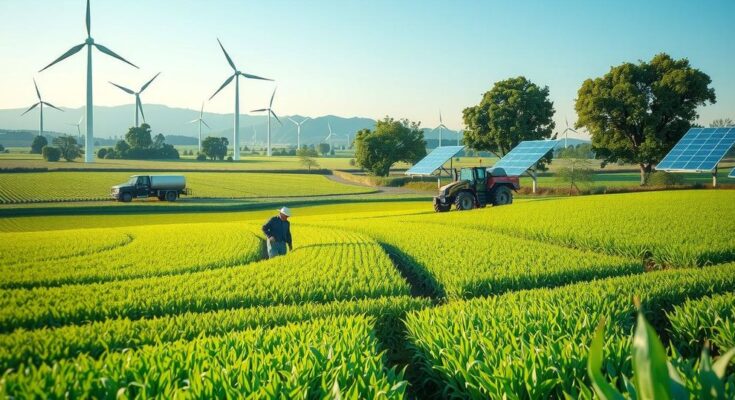Saul Luciano Lliuya, a Peruvian farmer, is suing German energy giant RWE over climate change threats to his home, located near a dangerous glacial lake. He seeks financial assistance for protective measures due to RWE’s historical carbon emissions. This lawsuit is notable as it represents a growing wave of climate-related civil suits worldwide, aiming to hold corporations accountable for their environmental impact. The trial is expected to influence future climate litigation.
A significant climate lawsuit commenced in a German court, where Peruvian farmer Saul Luciano Lliuya is suing the German energy company RWE. Lliuya’s home in Huaraz faces an imminent threat from Palcacocha, a lake filled with glacier meltwater. Should it overflow, it could potentially devastate his residence and endanger approximately 50,000 others in the area.
Lliuya is leveraging German property law to hold RWE accountable for its contribution to climate change. He claims that RWE has been responsible for 0.47% of global human-made carbon emissions since 1898. He is seeking roughly $18,000, equivalent to 0.47% of the costs needed to construct a protective dyke against possible flooding.
This case marks a pivotal moment in a decade-long struggle for Lliuya, being the first of nearly 50 similar climate lawsuits worldwide, including actions filed by municipalities such as Honolulu against major oil corporations. Although the ruling may not influence other jurisdictions directly, it could establish a legal framework applicable to various countries.
RWE refutes claims of legal liability, emphasizing that climate change is a multifaceted issue influenced by numerous factors. The company posits that if found liable, it could set a precedent where individuals could be held responsible for their carbon emissions as well, and insists that government policies should address climate challenges, not the judicial system.
The danger posed by Palcacocha is validated by historical events, such as the 1970 earthquake-induced landslide that resulted in 25,000 fatalities. Communities in the Peruvian Andes are facing dire consequences of climate change, including diminishing water supplies, toxic stream alterations, and unpredictable weather patterns that complicate agriculture.
Lliuya expressed concern about the increasing rainfall and river levels, highlighting the widespread unease within Huaraz. His attorney, Francesca Mascha Klein from Germanwatch, emphasized the necessity for polluters to bear the consequences of their operations to ensure the safety of communities threatened by climate change. The trial is taking place in Hamm, Germany, near RWE’s headquarters, and is expected to unfold over the coming weeks.
This landmark case in Germany illustrates the growing trend of holding corporations accountable for their environmental impact. The outcome may not only influence Lliuya’s fate and that of his community in Huaraz but could also provide a legal precedent for future climate litigation globally. The realities of climate change are particularly acute in the Peruvian Andes, necessitating urgent attention and action from policymakers and corporations alike.
Original Source: www.wkyufm.org




